
Tech & Sci
14:23, 29-Dec-2017
Year-end Review: China's six major environmental decisions
Alok Gupta
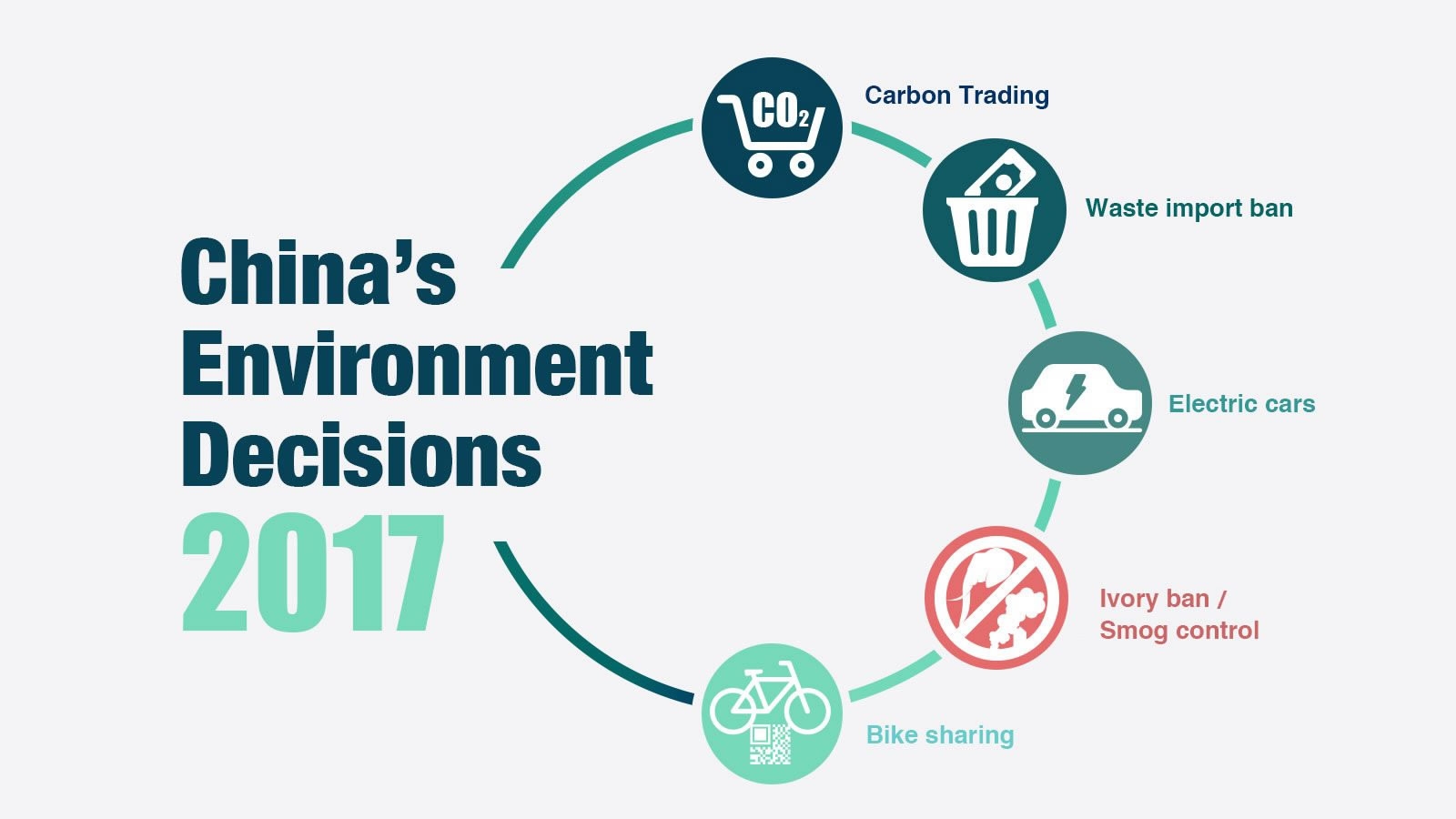
The year of 2017 witnessed a tectonic shift in climate change negotiations with the US President Donald Trump in June announcing to pull out of Paris Agreement. A few months later Chinese President Xi Jinping stressed on ecological civilization by developing green development concepts.
While the US is promoting coal, China is leaping forward to control emissions. In 2017, the Chinese government took six major decisions that are likely to have a global impact on the world’s environment.
China launches world largest carbon trading scheme
In the last month of 2017, China—one of the largest emitters of greenhouse gases—announced the launch of the much-awaited carbon emissions trading scheme (ETS).
In the first phase, the scheme will focus on the power sector and cover 1700 power plants that emit more than three billion tons of carbon dioxide. Experts believe China's ETS will be the world's largest carbon financing project, and likely to overtake Europe's version in the coming years.
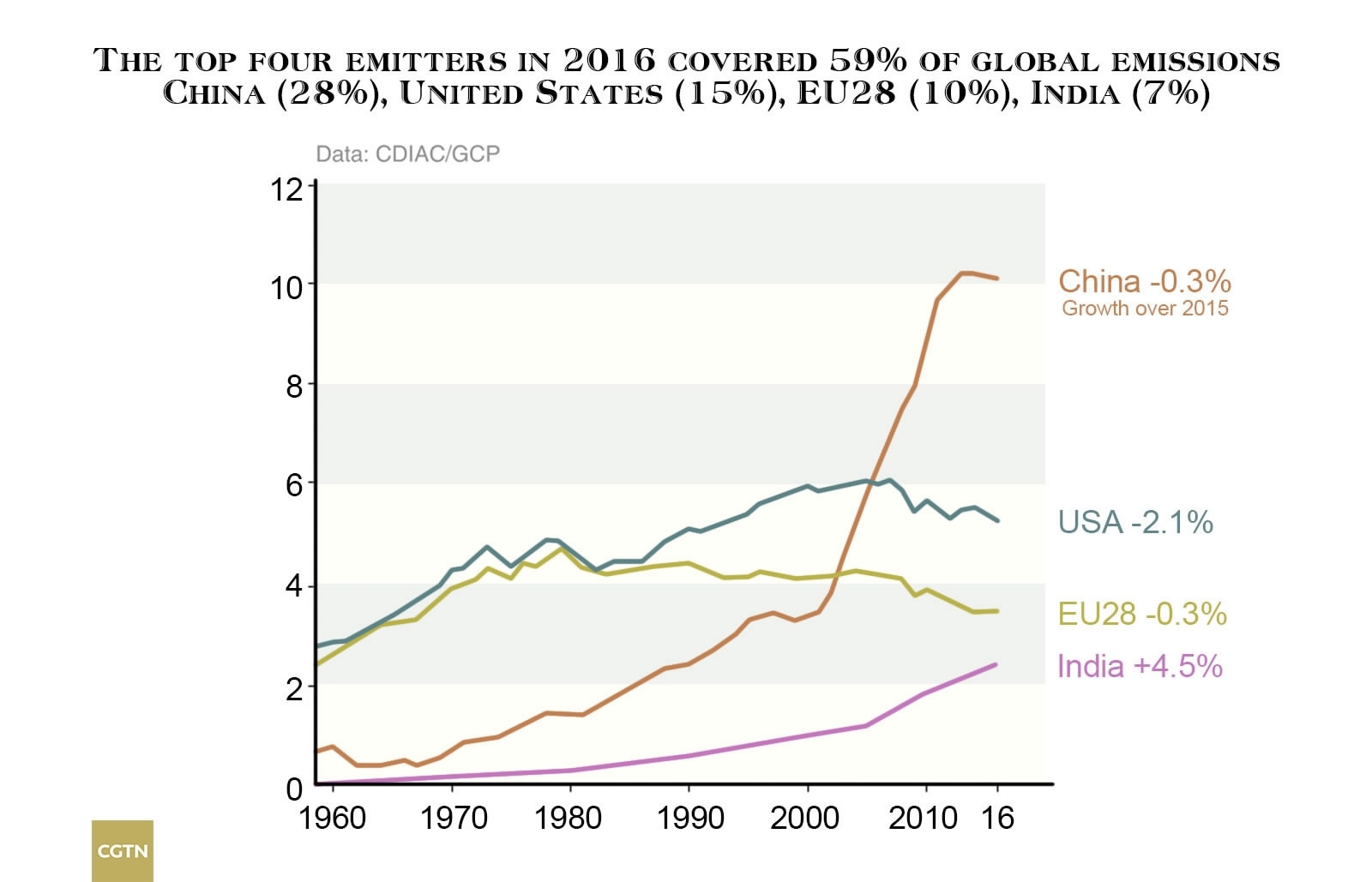
China, USA, EU and India are top four emitters of the world.
China, USA, EU and India are top four emitters of the world.
The NDRC in 2013 launched seven pilot emission trading schemes in Beijing, Tianjin, Shanghai, Chongqing, Shenzhen, Guangdong, and Hubei. Under the Paris Accord, China has promised to cut carbon emissions by 60 to 65 percent per unit of GDP by 2030, compared with 2005 levels.
China bans waste import
In July, China notified World Trade Organisation (WTO) it would ban 24 types of waste materials effective from March 2018. Country imports nearly 70 percent of plastic waste from all over the world worth 17 billion US dollars.
The ban has rattled many developed countries heavily dependent on China to recycle plastic and paper waste. In a noting, the Chinese government apprised the WTO, “Large amounts of dirty wastes or even hazardous wastes are mixed in the solid waste that can be used as raw materials. This polluted China's environment seriously."
the Ban is giving cold feet to governments in the US, UK and EU to the extent that in September, Ray Georgeson, chief executive of the Resource Association, an advocacy body in the UK, told a conference, “There is an urgent need for the government to get on the plane to Beijing to take a delegation to China and start negotiating.”
Fossil-fuel cars sale and production phasing out soon
The Chinese government in September announced to phase out production and sale of fossil fuel run cars in coming years.
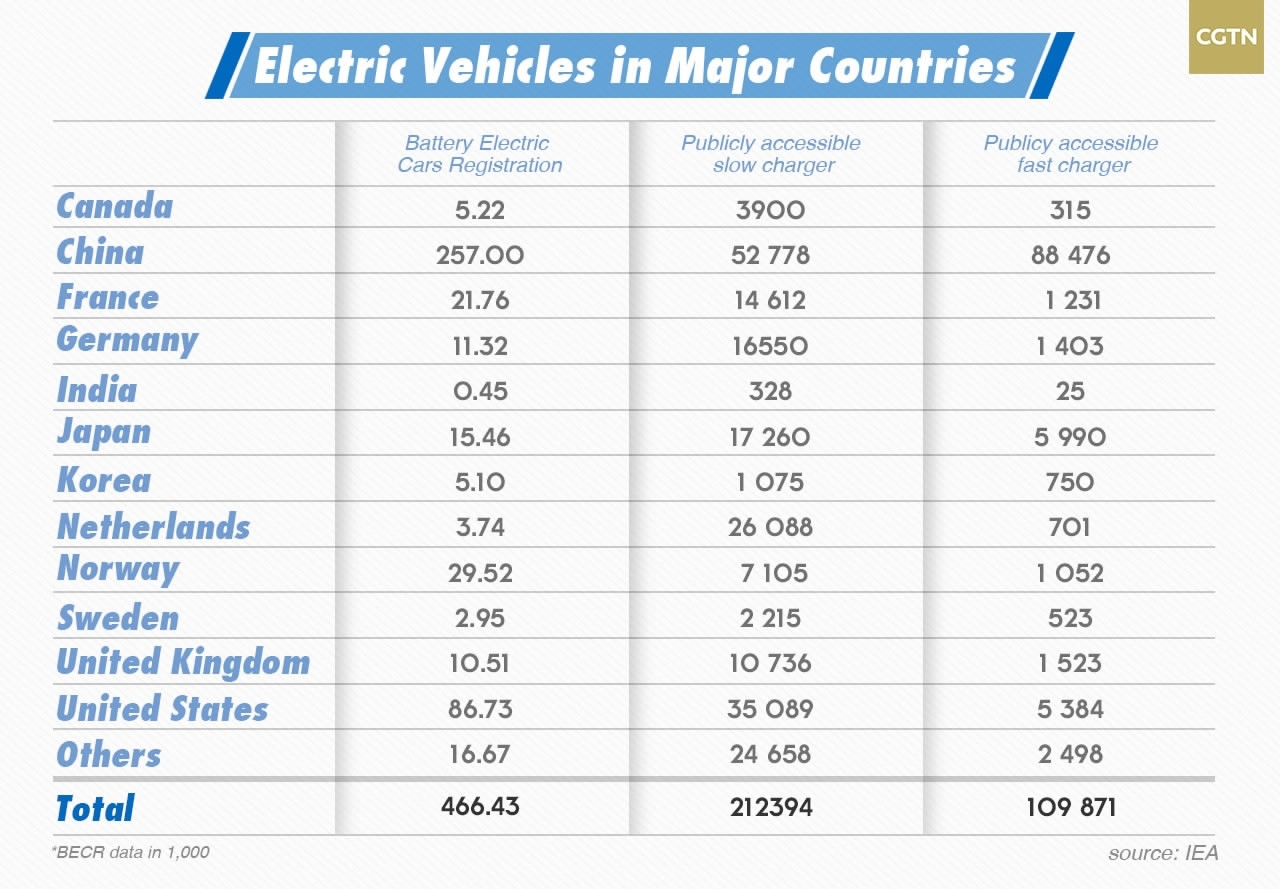
China is the world’s largest market for automobiles.
China is the world’s largest market for automobiles.
Xin Guobin, vice minister of industry and information technology during an auto forum in Tianjin revealed that the government is working with regulators on a timetable to phase out production and sales of diesel and petrol run cars.
At present the government provides generous subsidies to buy electric vehicles. The decision to end sale and manufacture of fossil fuel cars is aimed at controlling air pollution and meet the global standards.
France and the UK have already announced similar plan to ban fossil fuel run vehicles. China is the world’s largest market for automobiles; more than 28 million vehicles were sold last year.
The announcement has made China a favorite destination for companies like Tesla, Toyota, Nissan and General Motors that have launched electric cars.
Ivory ban and historic drop in air pollution
China may be notorious for air pollution, but this winter Beijing region that comprises of 26+2 cities is witnessing a historic drop in the level of pollutants.
According to Greenpeace data last year, PM2.5 levels hovered at 108 micrograms, nearly double this year’s level of 67.4 micrograms. A high concentration of extremely fine particulate matter (PM) measuring 2.5 and 10 microns in size; sulfur dioxide, nitrogen dioxide, and carbon monoxide in the atmosphere leads to air pollution.
Sulfur dioxide presence in the city’s air also reduced by 52.5 percent compared to the previous year's emissions. Sulfur dioxide is a significant contributor to the formation of PM2.5 particles. PM10 levels are also seeing a drastic drop from 137 micrograms last year to nearly 71.6 micrograms this winter, a reduction of 41.7 percent.
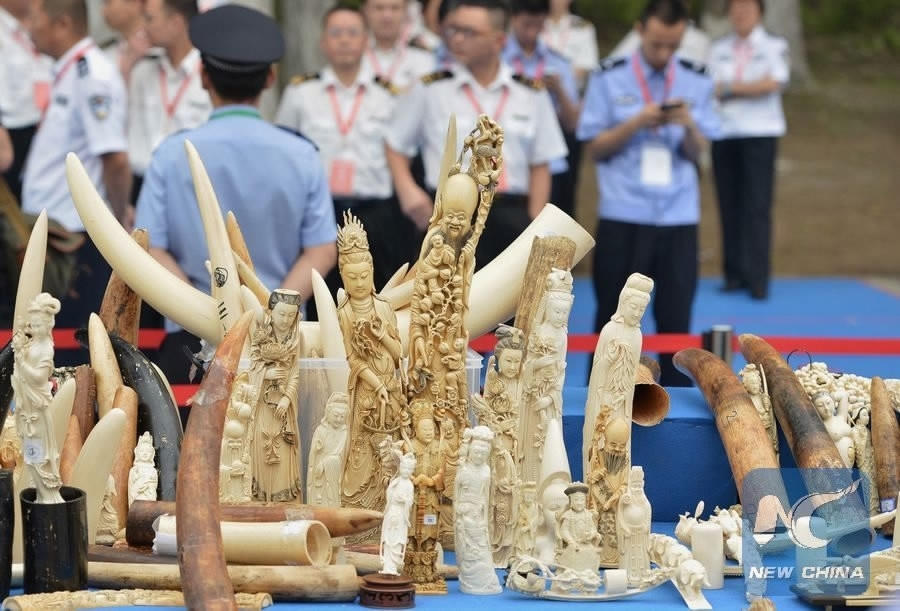
Confiscated ivory before destruction at Beijing Wildlife Rescue and Rehabilitation Center in Beijing on May 29, 2015. /Xinhua Photo
Confiscated ivory before destruction at Beijing Wildlife Rescue and Rehabilitation Center in Beijing on May 29, 2015. /Xinhua Photo
Lauri Myllyvirta, air pollution specialist at Greenpeace Beijing told CGTN that the massive drop in air pollution is the result of a major shut down of cement and steel plants, plus restrictions on small-scale coal use.
China is implementing a ban on ivory trade at the end of this year. According to World Wildlife Fund Hong Kong Special Administrative Region is the world’s largest market and China is the largest consumer of ivory. The ban is likely to save poaching of nearly 30,000 African elephants.
Bike sharing goes global
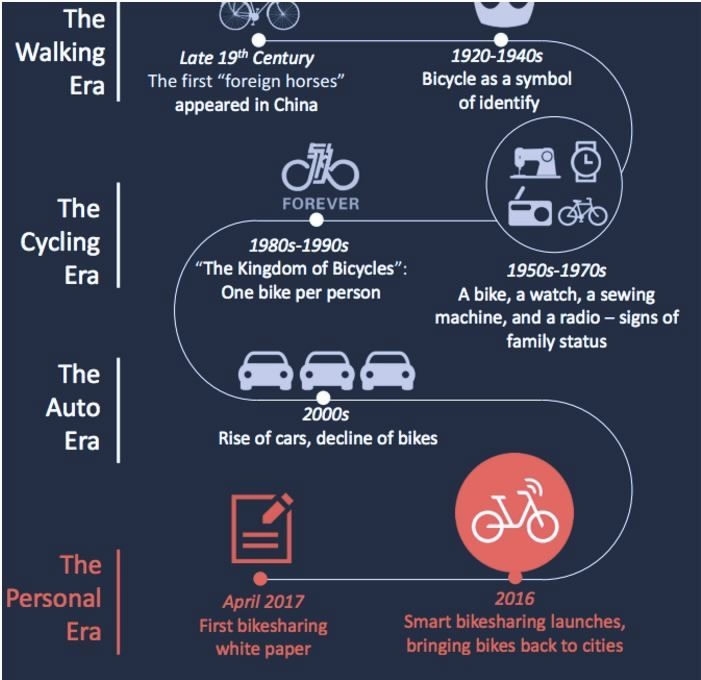
A brief history of mobility in China. /Mobike Graphics
A brief history of mobility in China. /Mobike Graphics
China’s bikes known for controlling vehicular emissions witnessed a mixed year. Mobike operating in 165 Chinese cities entered 11 cities overseas and also launched in the US capital, Washington DC in Sept.
Ofo another bike company is planning launch in 20 countries by the end of 2017. Mobike’s white paper claims that their bikes cycled a combined distance of more than 2.5 billion since its launch that is equal to taking 170,000 cars off the road.
However, pile up of dockless bikes and a bike company Bluegogo going bankrupt caused much concern over profitability and sustainability of these bike companies.

SITEMAP
Copyright © 2018 CGTN. Beijing ICP prepared NO.16065310-3
Copyright © 2018 CGTN. Beijing ICP prepared NO.16065310-3